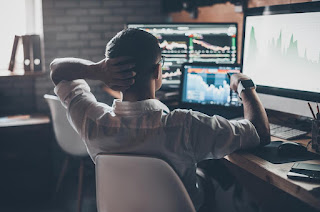When it comes to forex trading, choosing the right broker is essential. One key factor to consider when selecting a broker is their overall reputation. A broker with a good reputation is more likely to be reliable and trustworthy, which can provide added peace of mind when it comes to managing your funds and executing trades. In this chapter, we will explore the various aspects of a broker's reputation and how to find a broker with a strong track record.
Regulatory Status.
One of the key indicators of a broker's reputation is their regulatory status. Most reputable brokers are regulated by one or more government agencies or independent organizations. Some of the major regulatory agencies include the Financial Conduct Authority (FCA) in the UK, the Commodity Futures Trading Commission (CFTC) in the US, and the Australian Securities and Investments Commission (ASIC).
Being regulated by a reputable agency can provide added assurance that a broker is operating in a legal and ethical manner. It also means that the broker is subject to oversight and must adhere to strict industry standards. If you are considering a broker that is not regulated, it is important to carefully consider the potential risks and whether the broker is trustworthy.
Reputation Among Traders.
Another way to assess a broker's reputation is by looking at feedback and reviews from other traders. There are a few key things to consider when evaluating the reputation of a broker:
- Look for reviews from a variety of sources: Reviews and ratings from a range of sources can provide a more well-rounded view of a broker's reputation. This can include industry websites, forums, and independent review sites.
- Consider the overall trend: While it is normal for a broker to have some negative reviews, it is important to consider the overall trend. If a broker has mostly positive reviews with a few negative ones here and there, this may be a good indication of their reputation. On the other hand, if a broker has mostly negative reviews, this could be a red flag.
- Take individual reviews with a grain of salt: It is important to keep in mind that individual reviews may not always be representative of the overall experience of traders. Some reviewers may have unrealistic expectations or may be more prone to complaining. As a result, it is important to consider the overall trend rather than relying on a single review.
By considering regulatory status and reviews from other traders, you can get a sense of a broker's overall reputation and determine whether they are reliable and trustworthy.
Summary:
A broker's reputation is an important factor to consider when choosing a forex broker. A broker with a good reputation is more likely to be reliable and trustworthy, which can provide added peace of mind when it comes to managing your funds and executing trades. By considering regulatory status and reviews from other traders, you can get a sense of a broker's overall reputation and determine whether they are a good fit for your needs.

Comments
Post a Comment